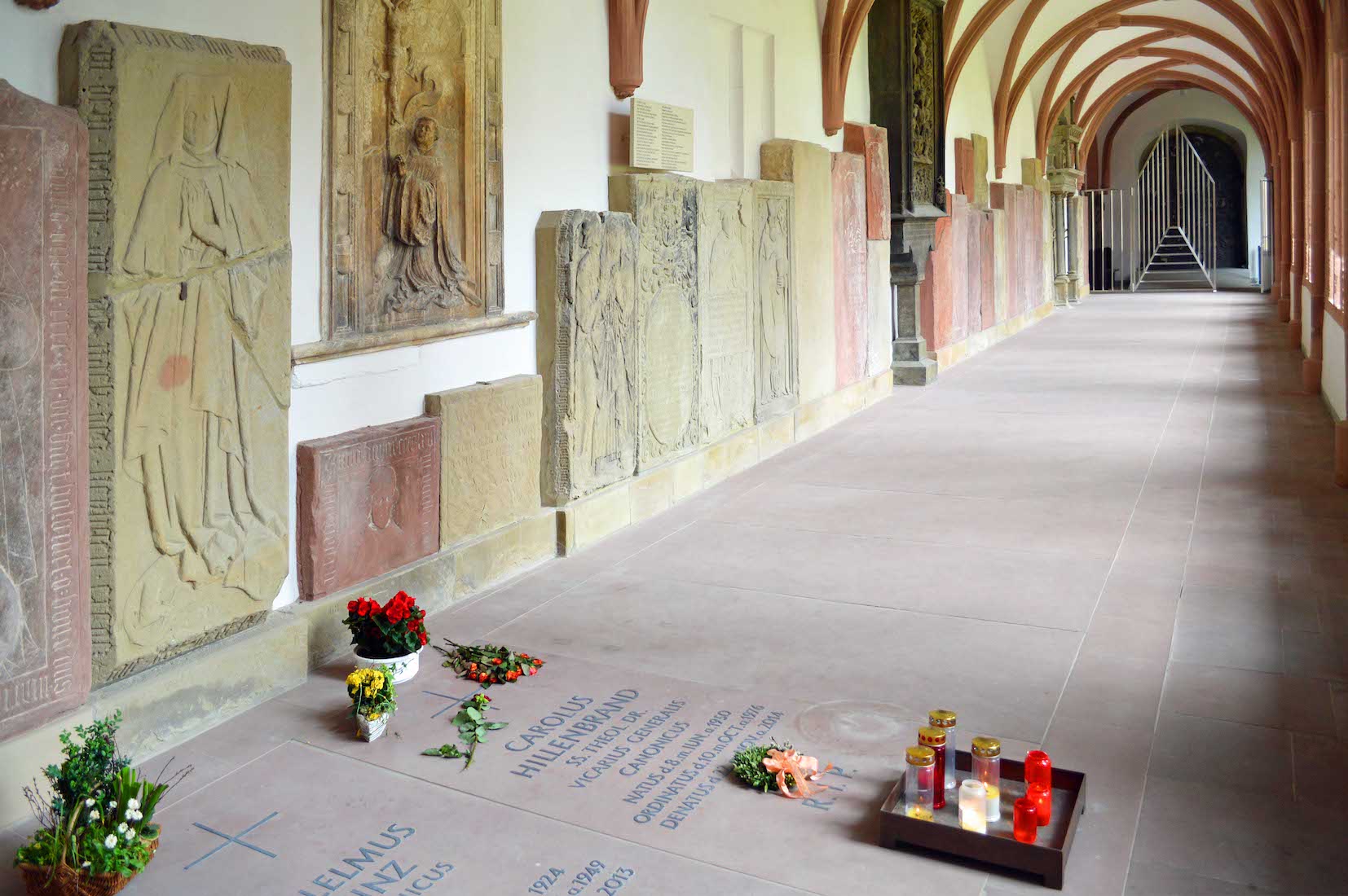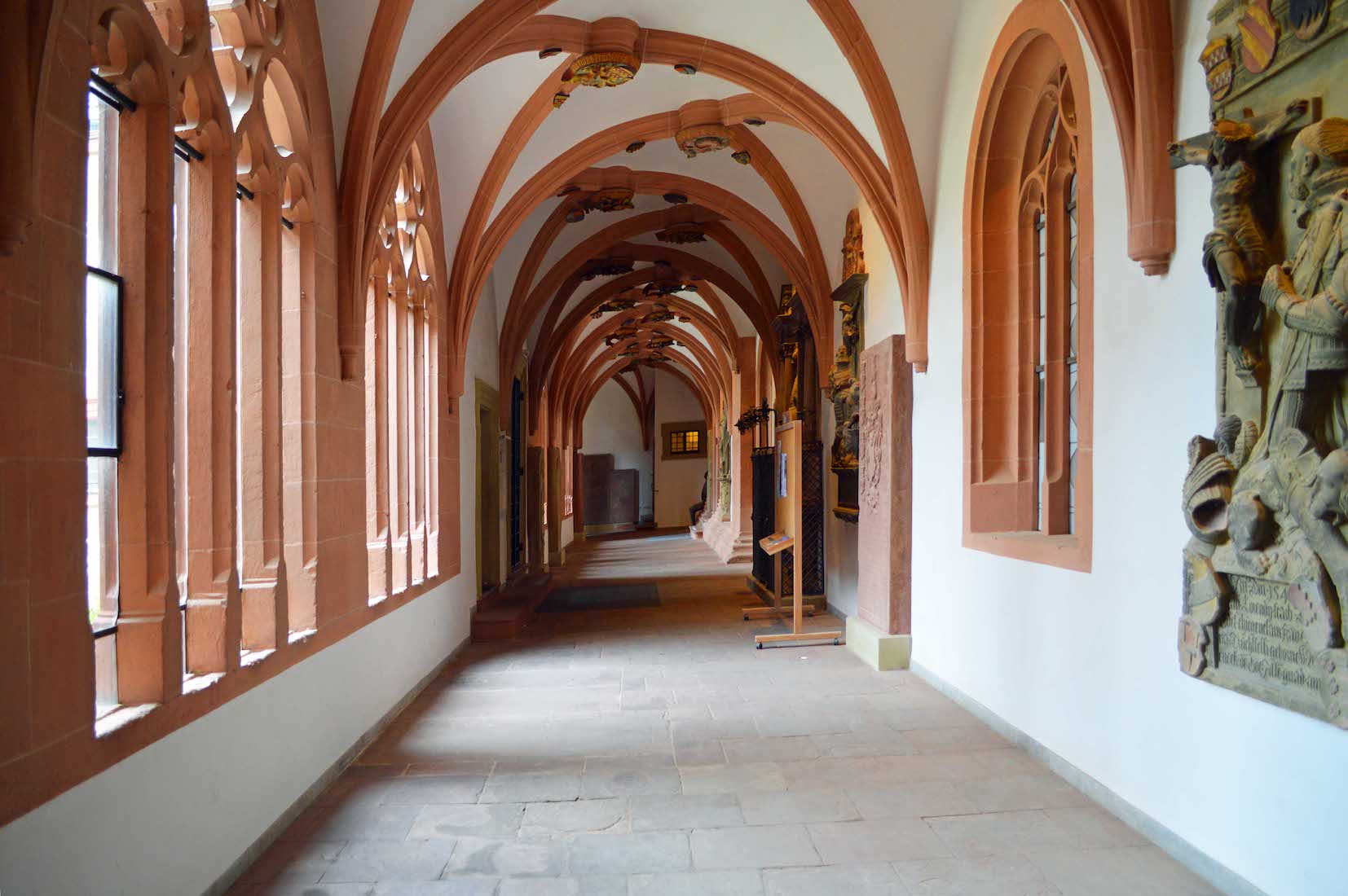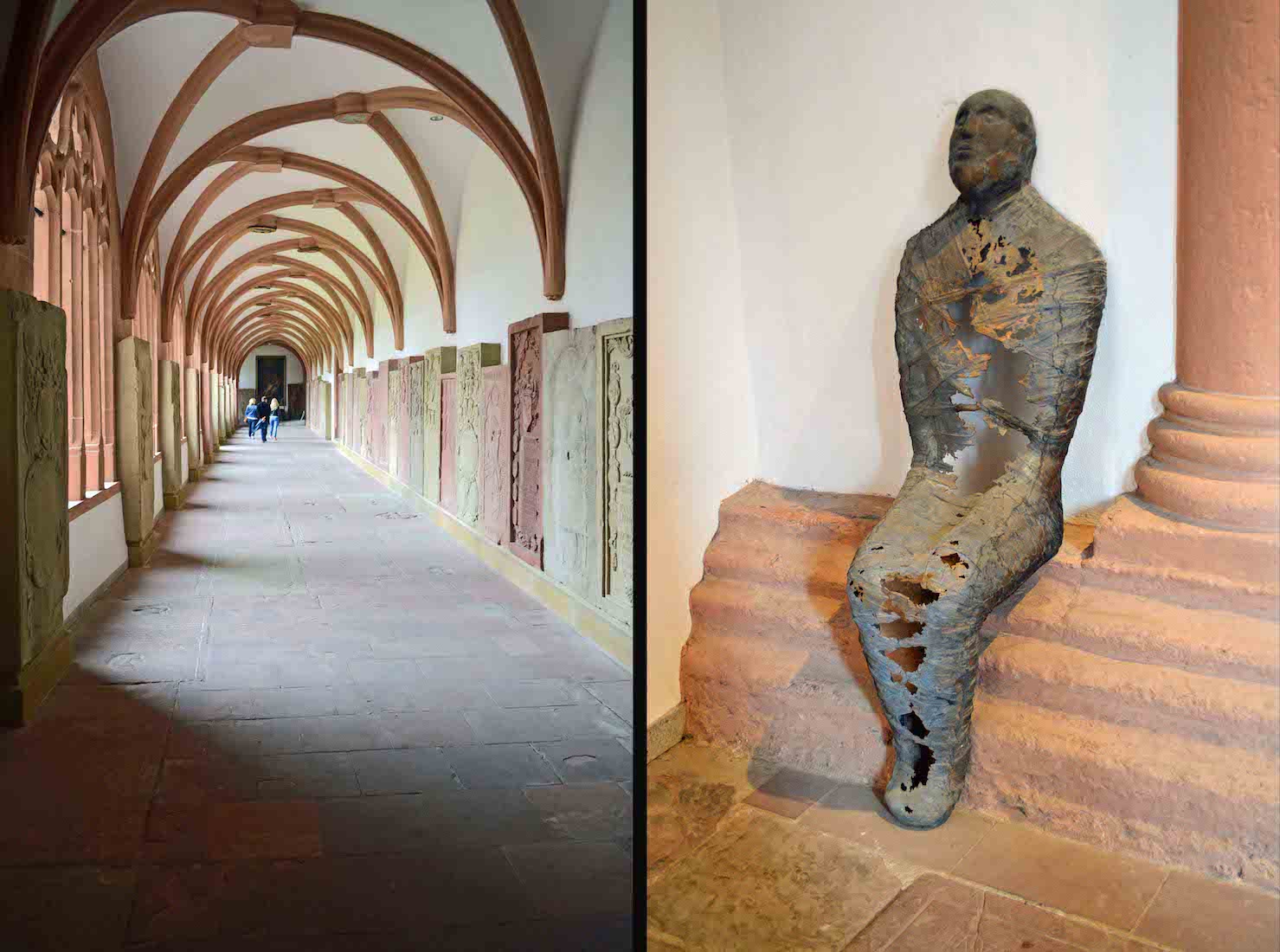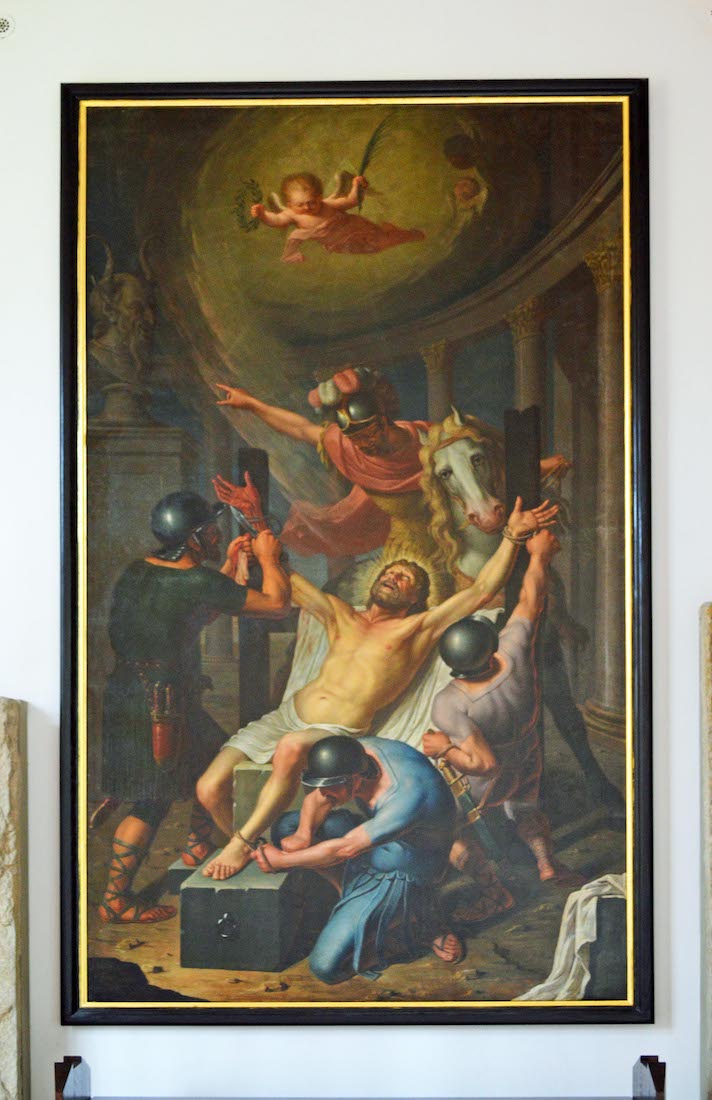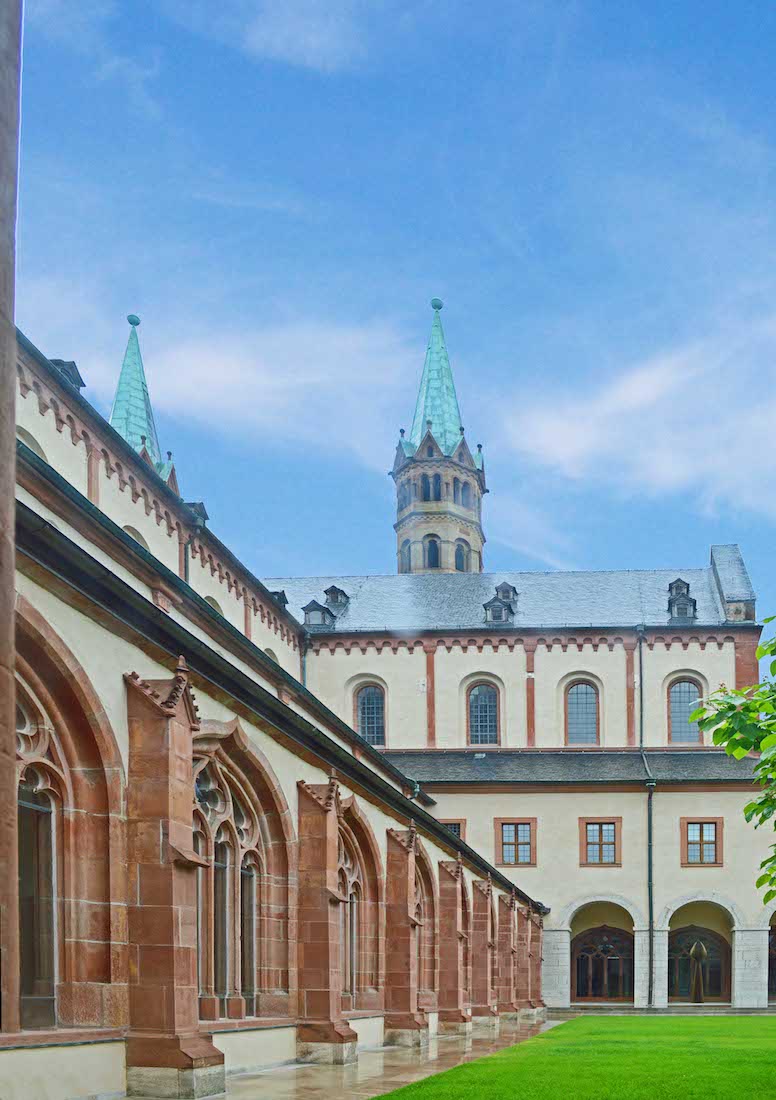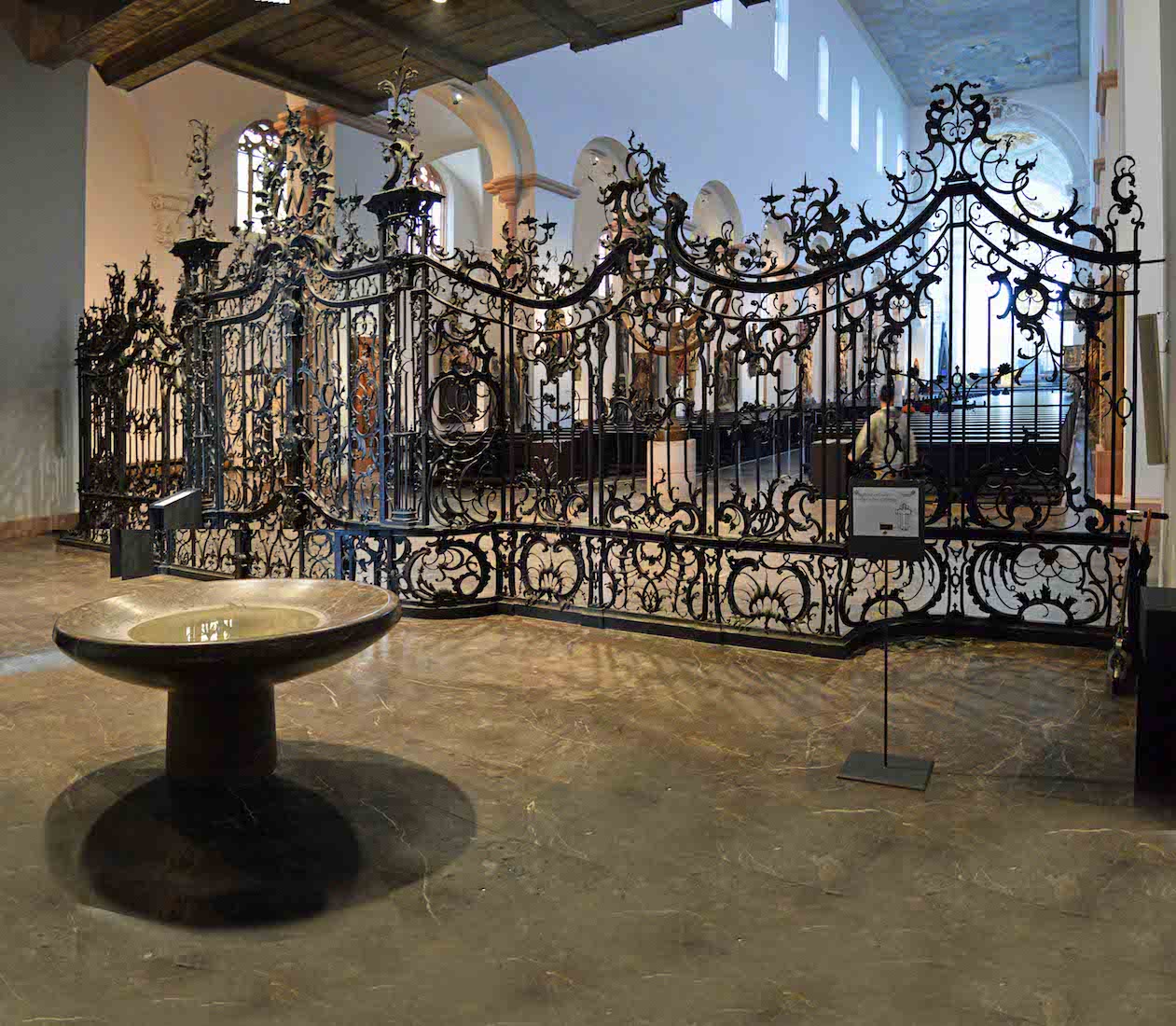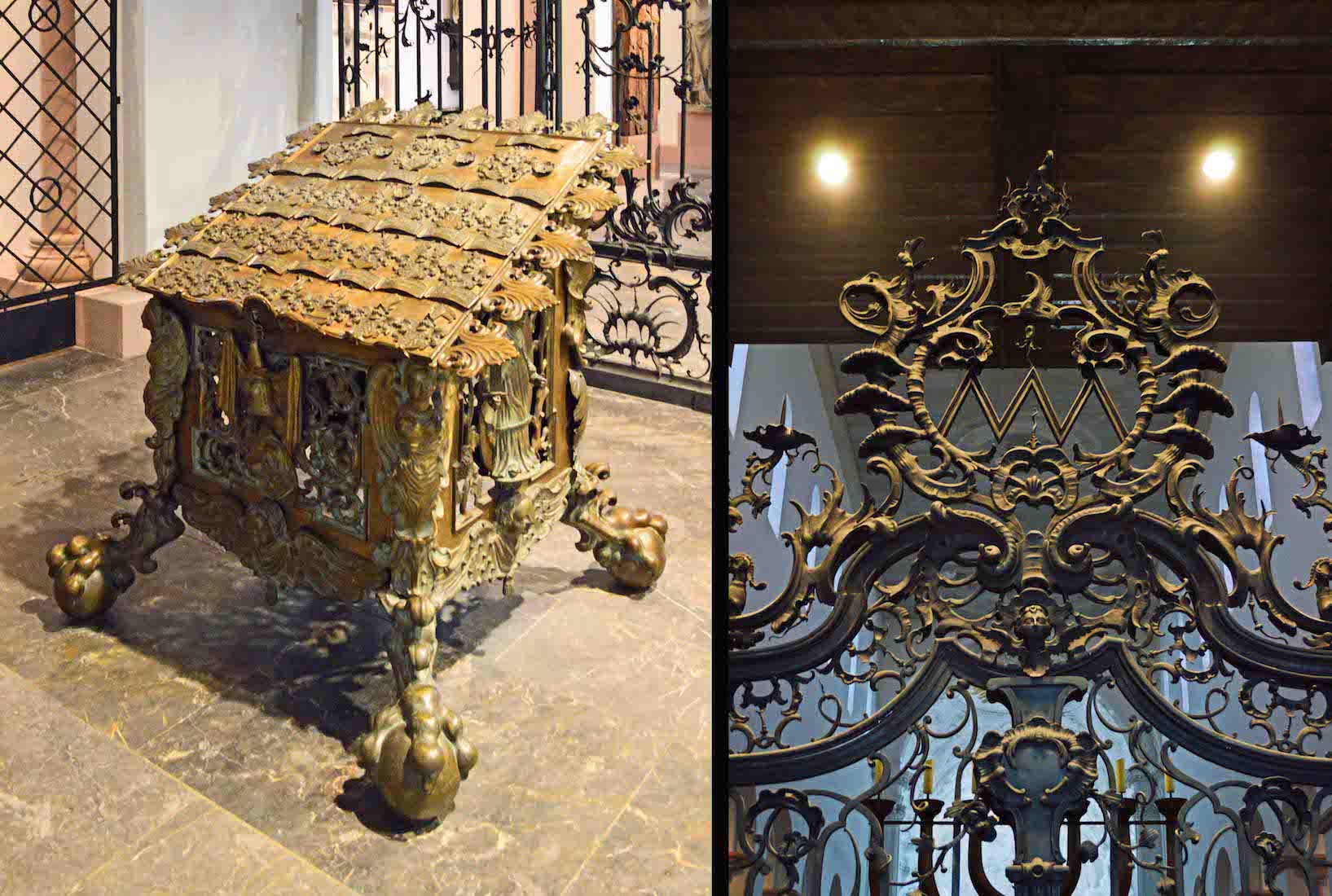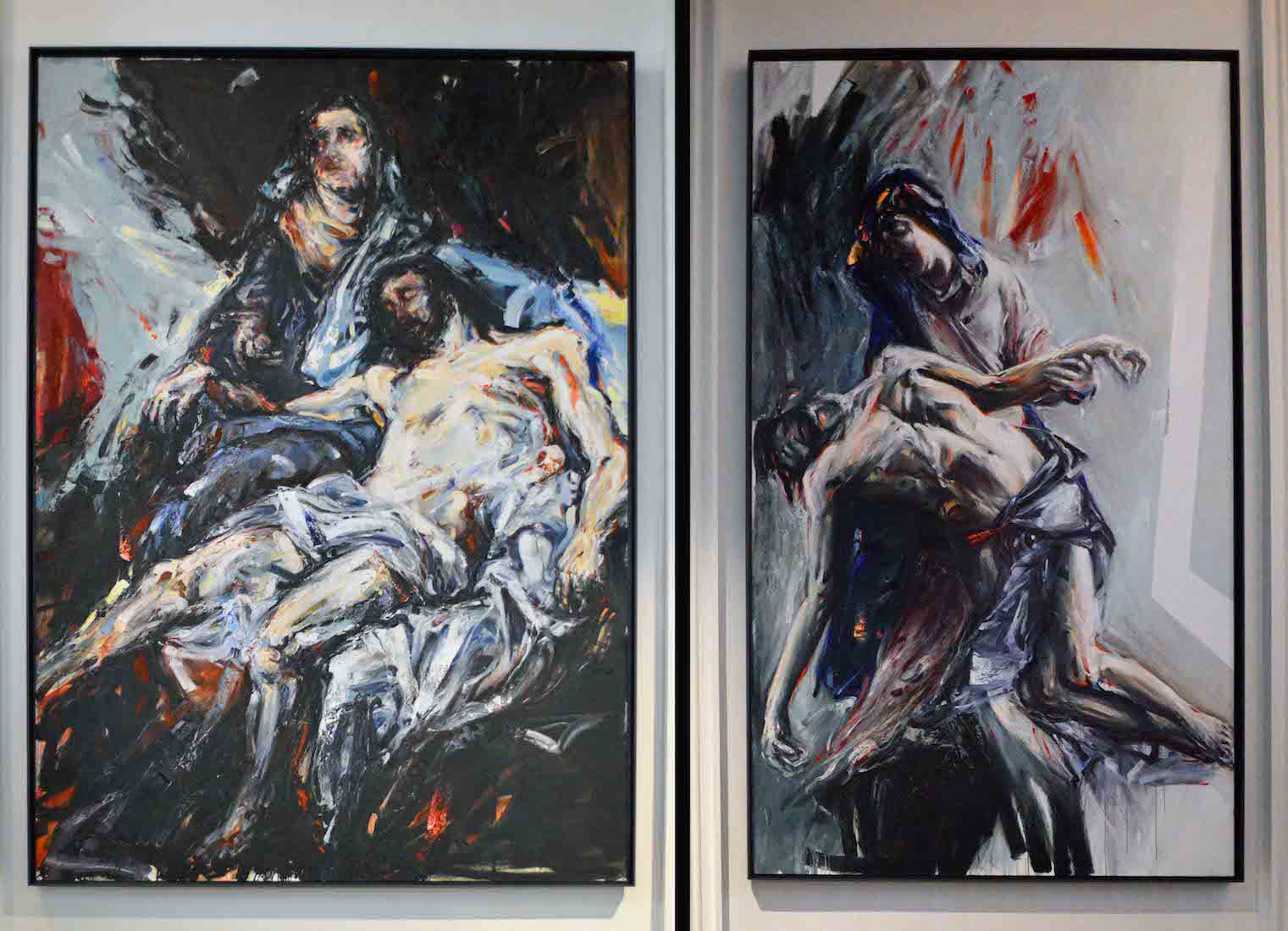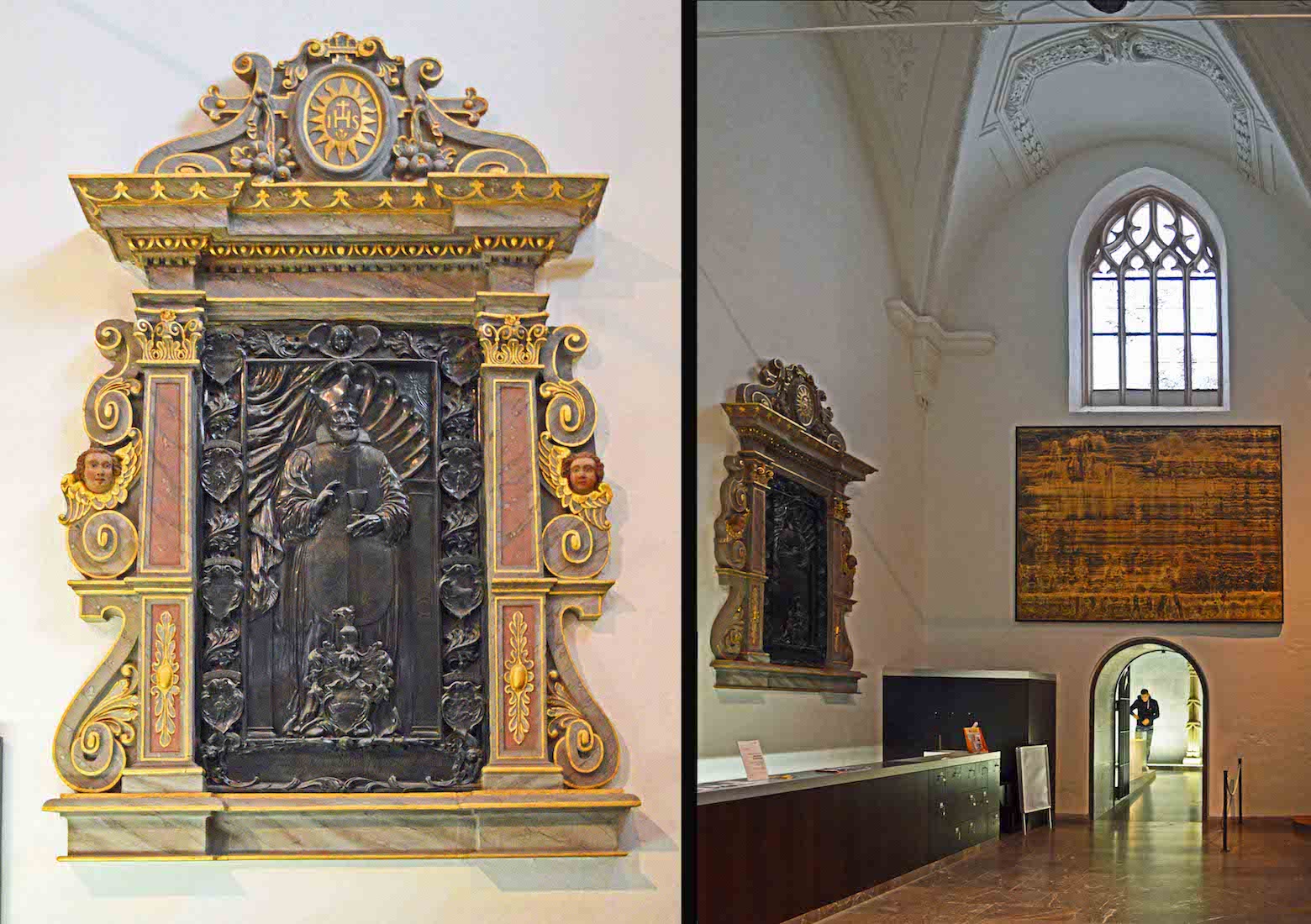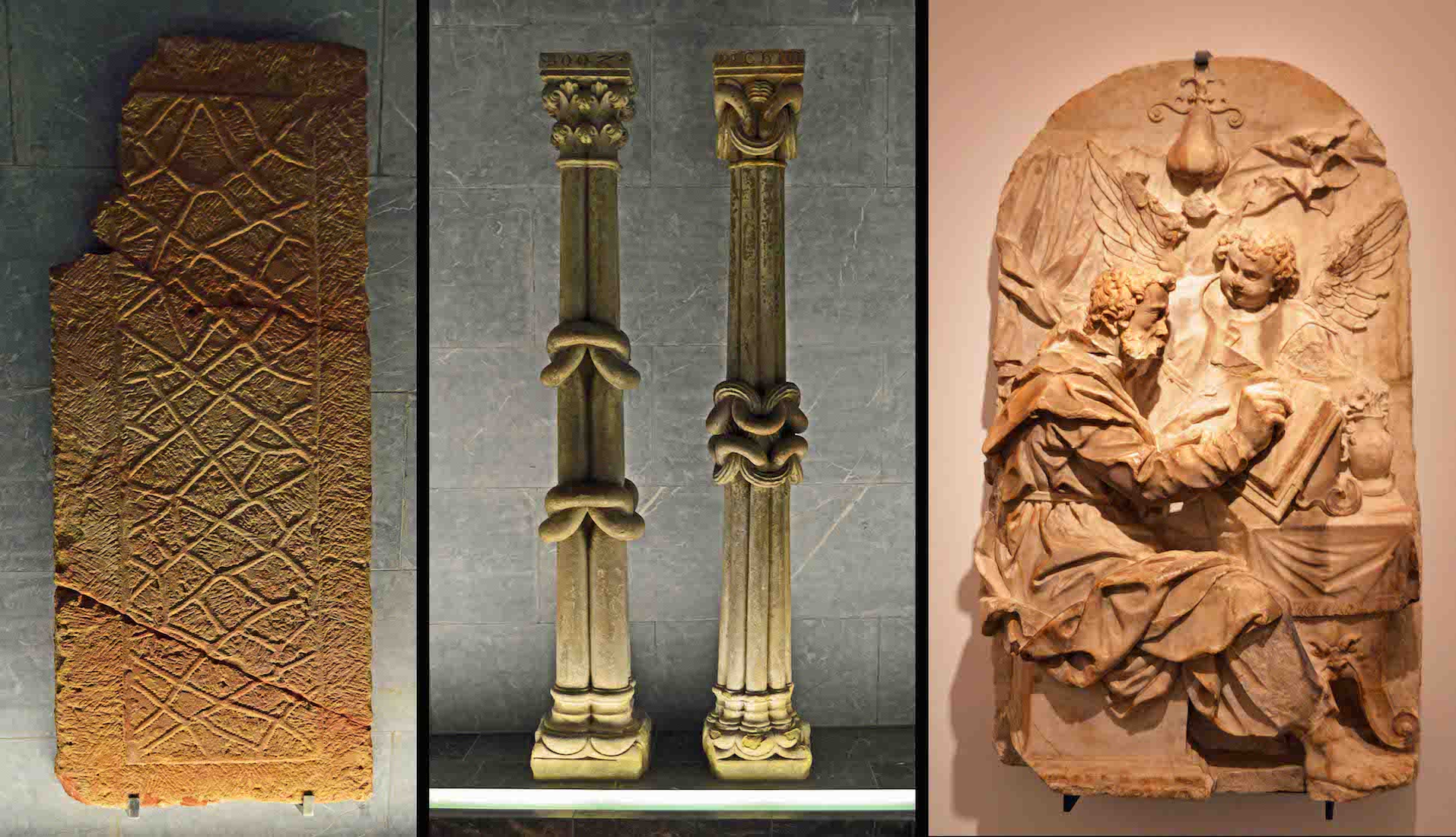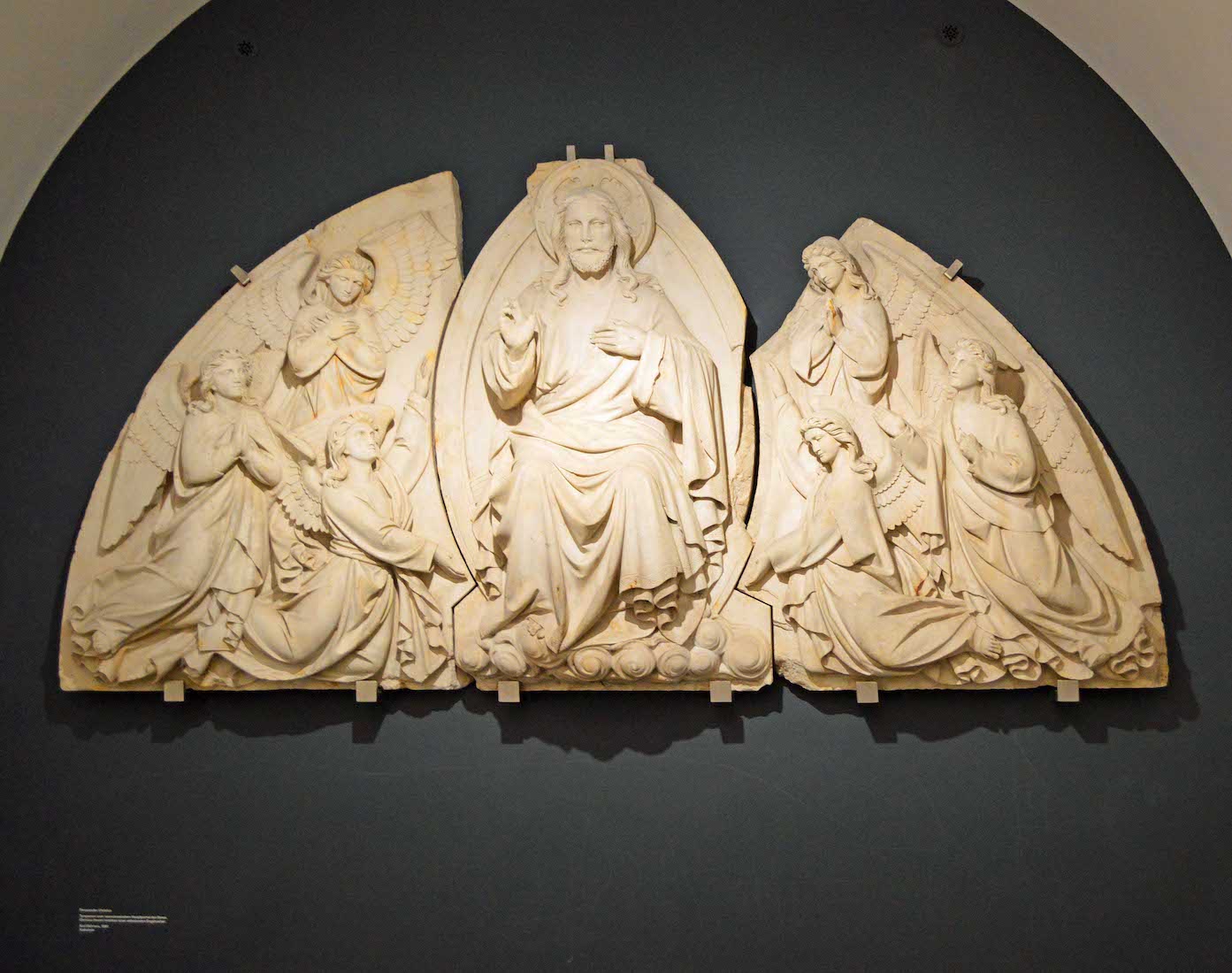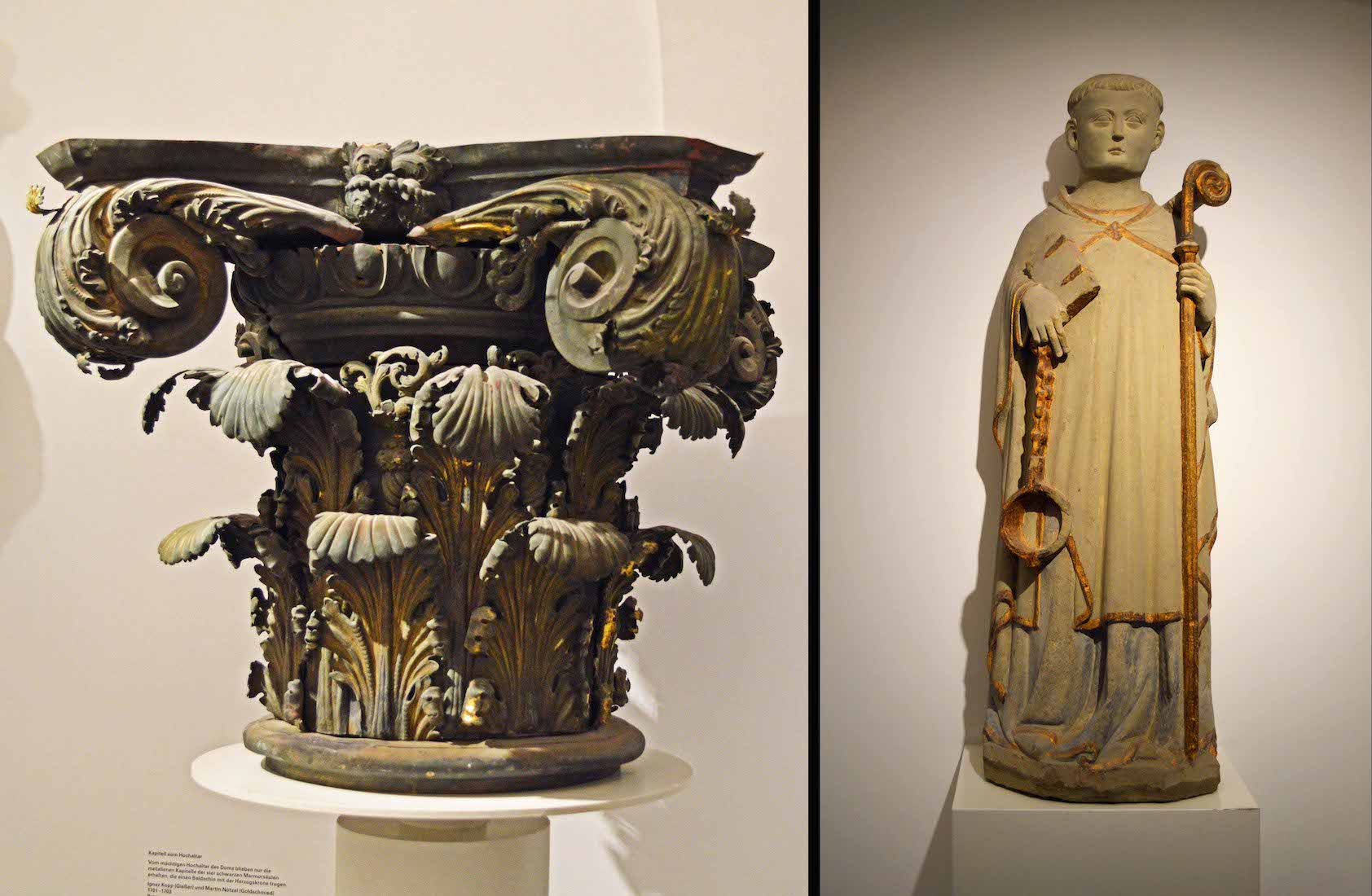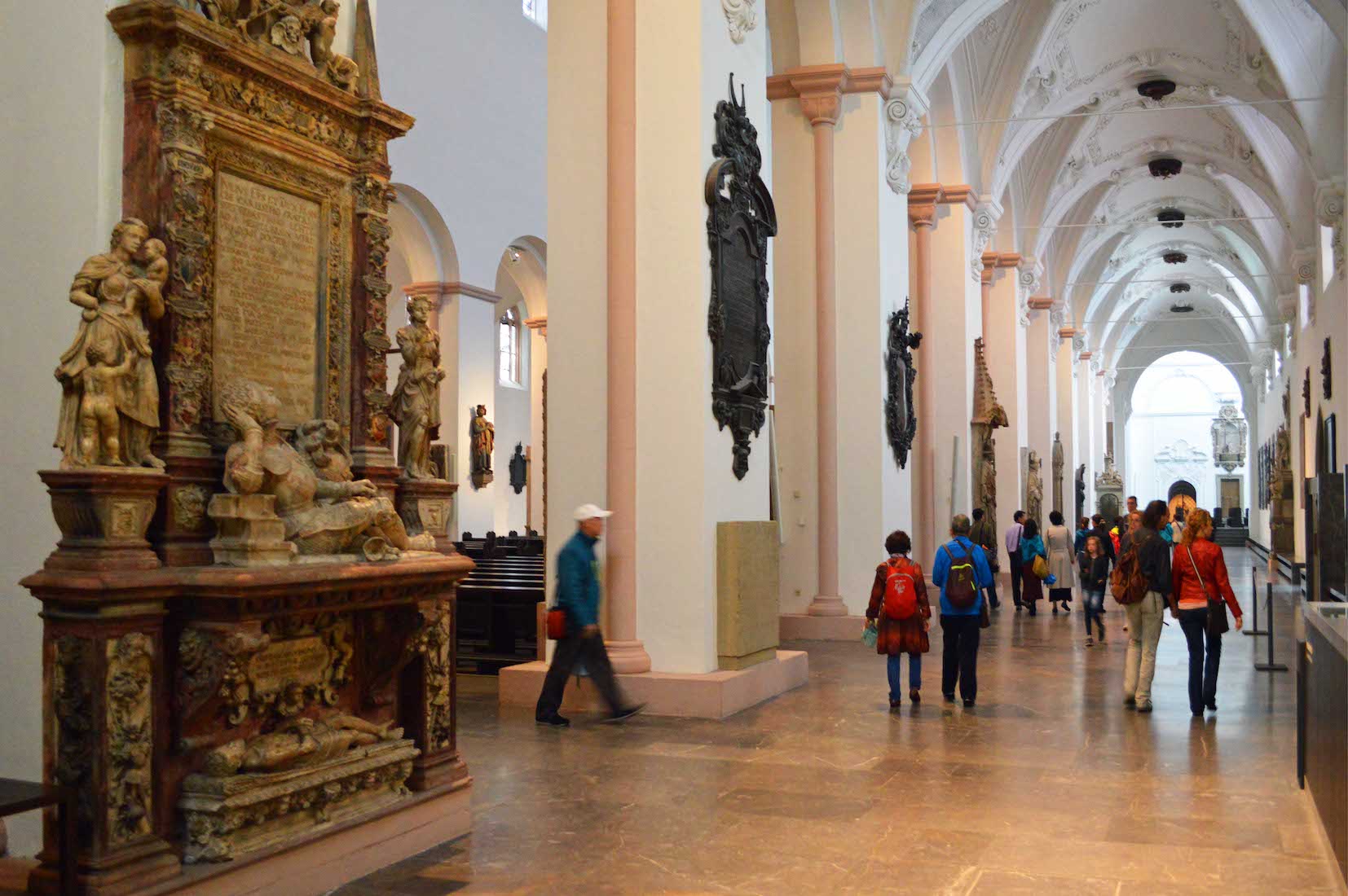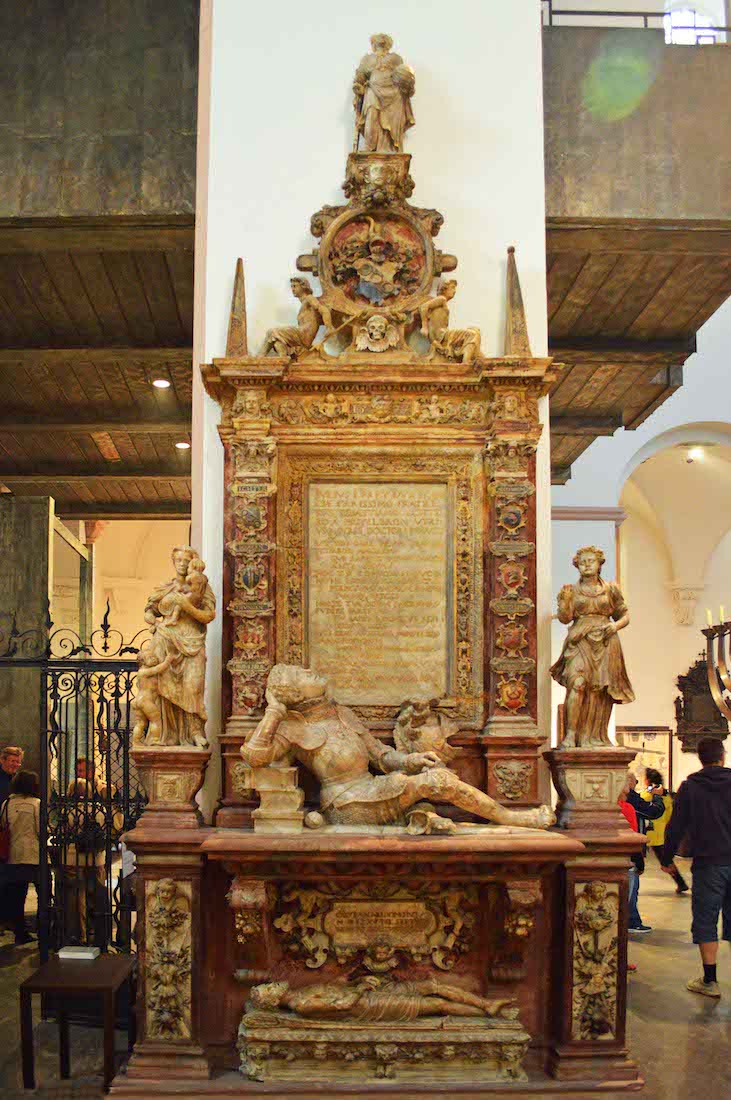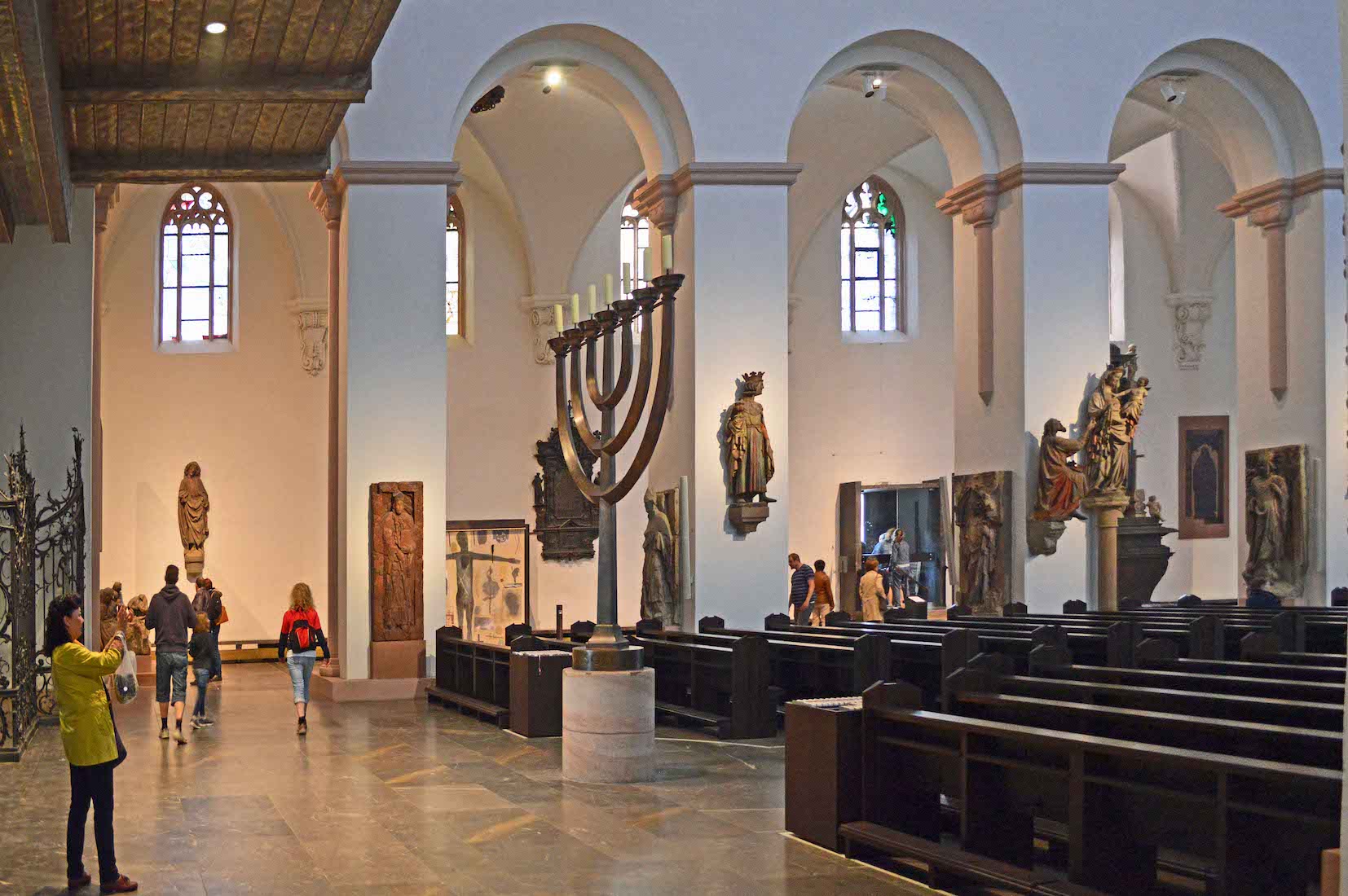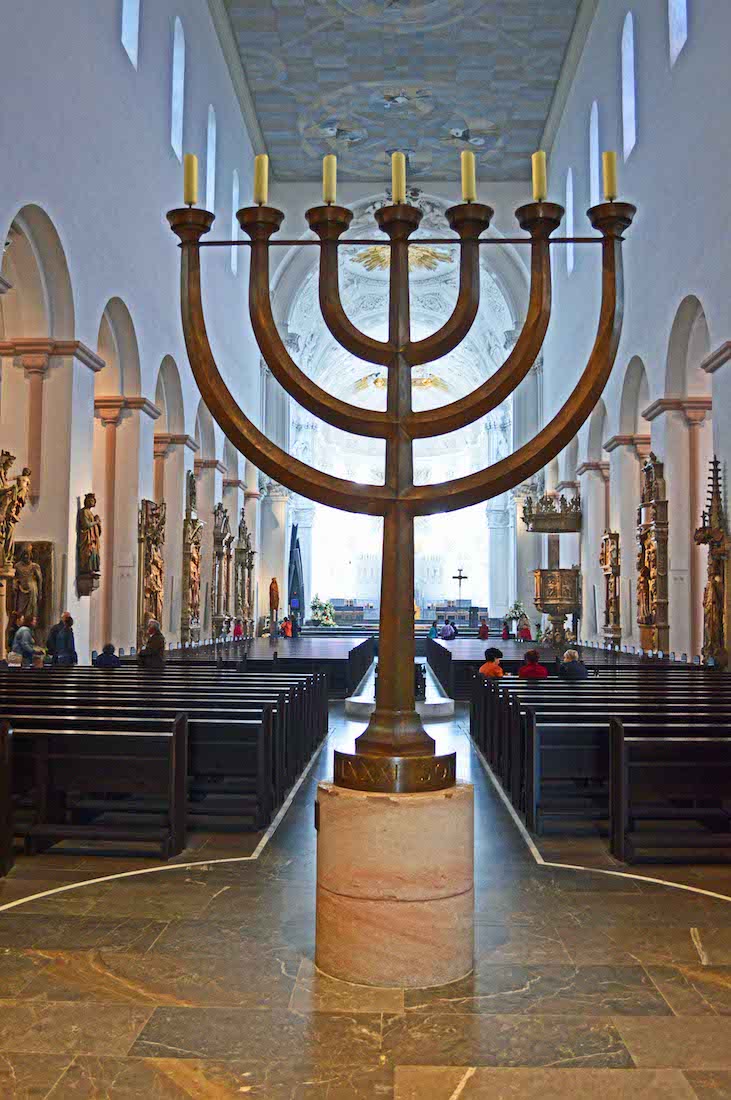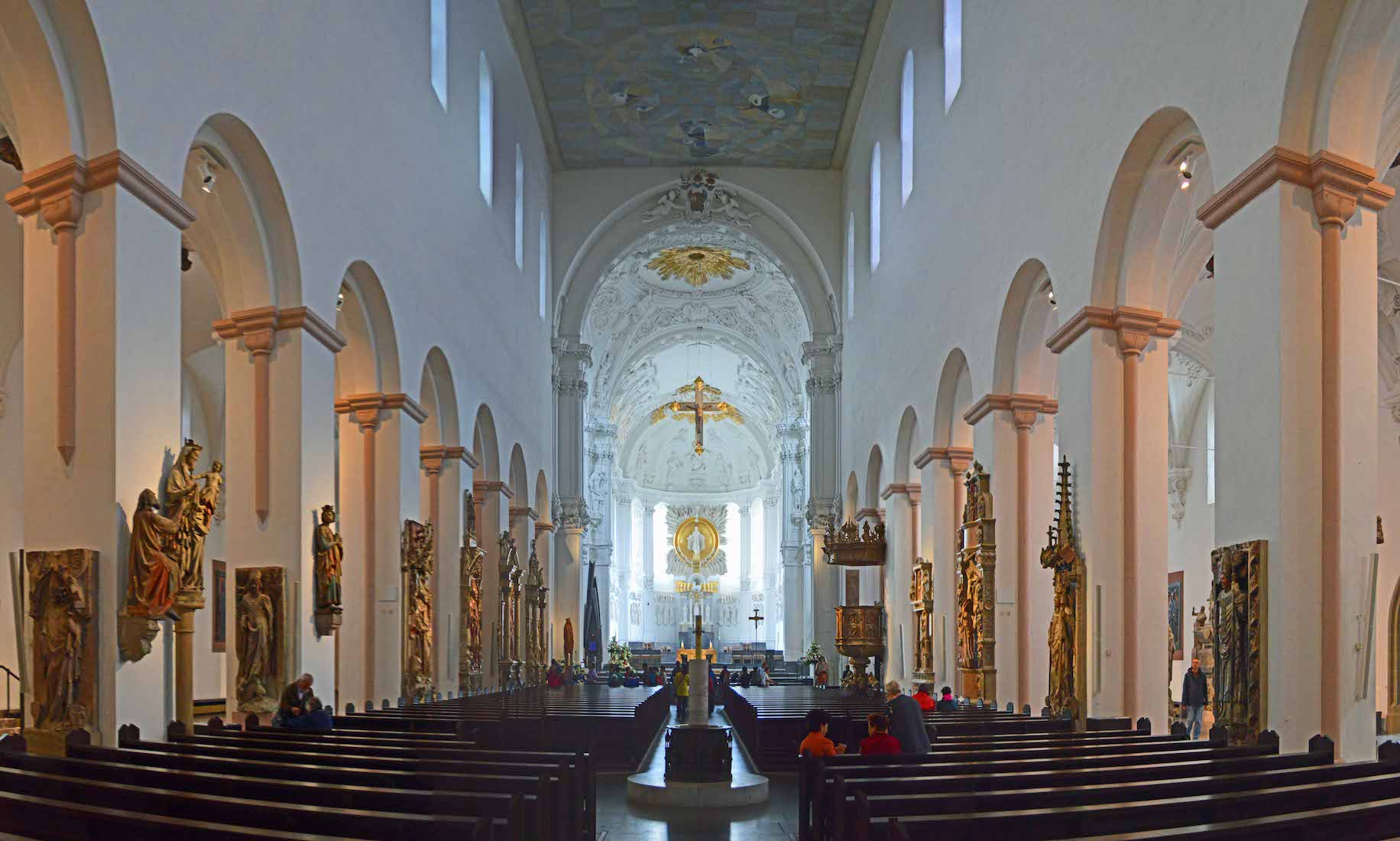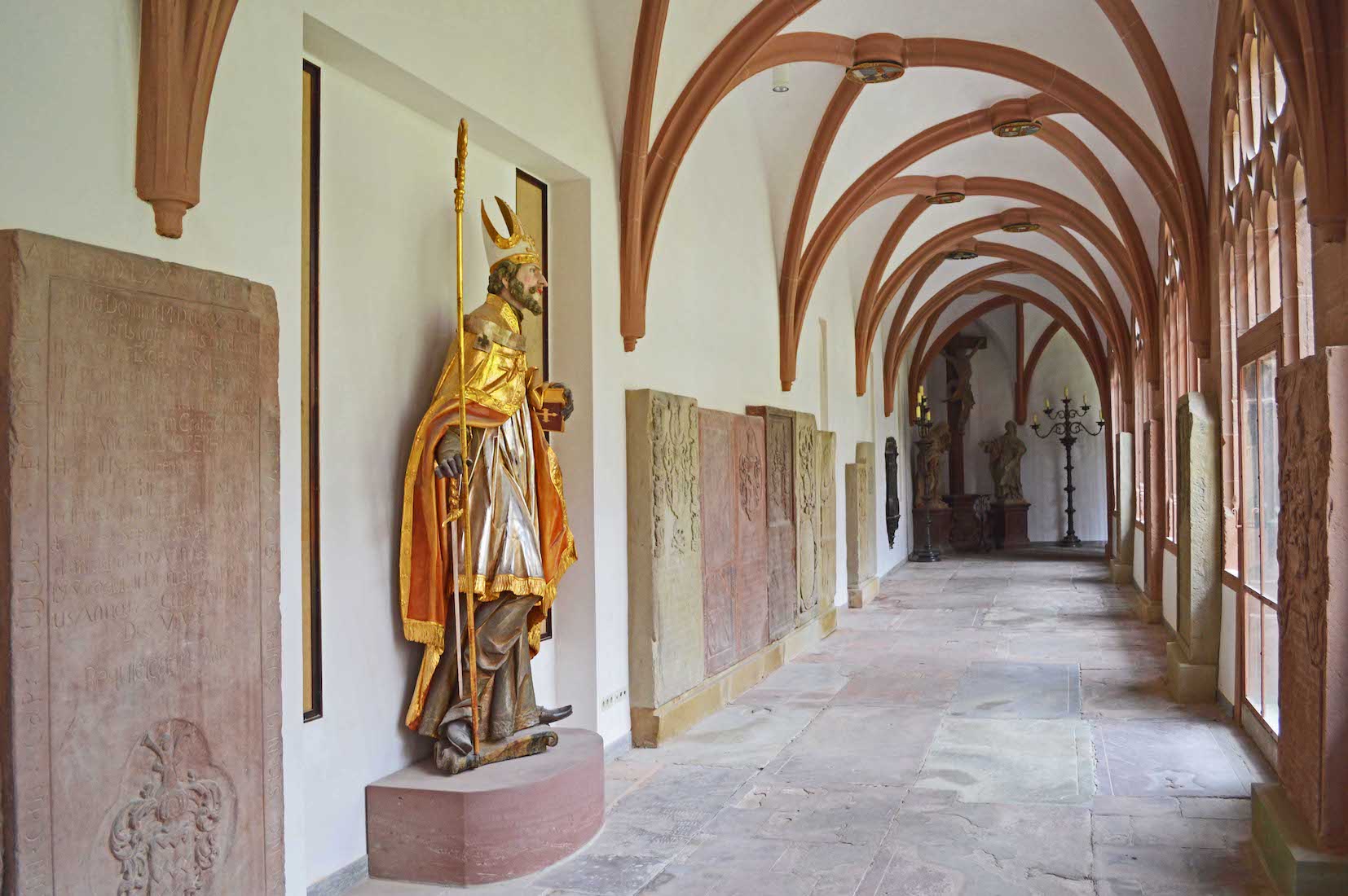
The South path of the cloister contains a brightly robed cleric, and leads to a crucifixion scene at the far corner. Memorial stones of Cathedral canons mounted on the walls, originate from the Sepultur. PLAN
22. BISHOP AND CRUCIFIXION SCENE
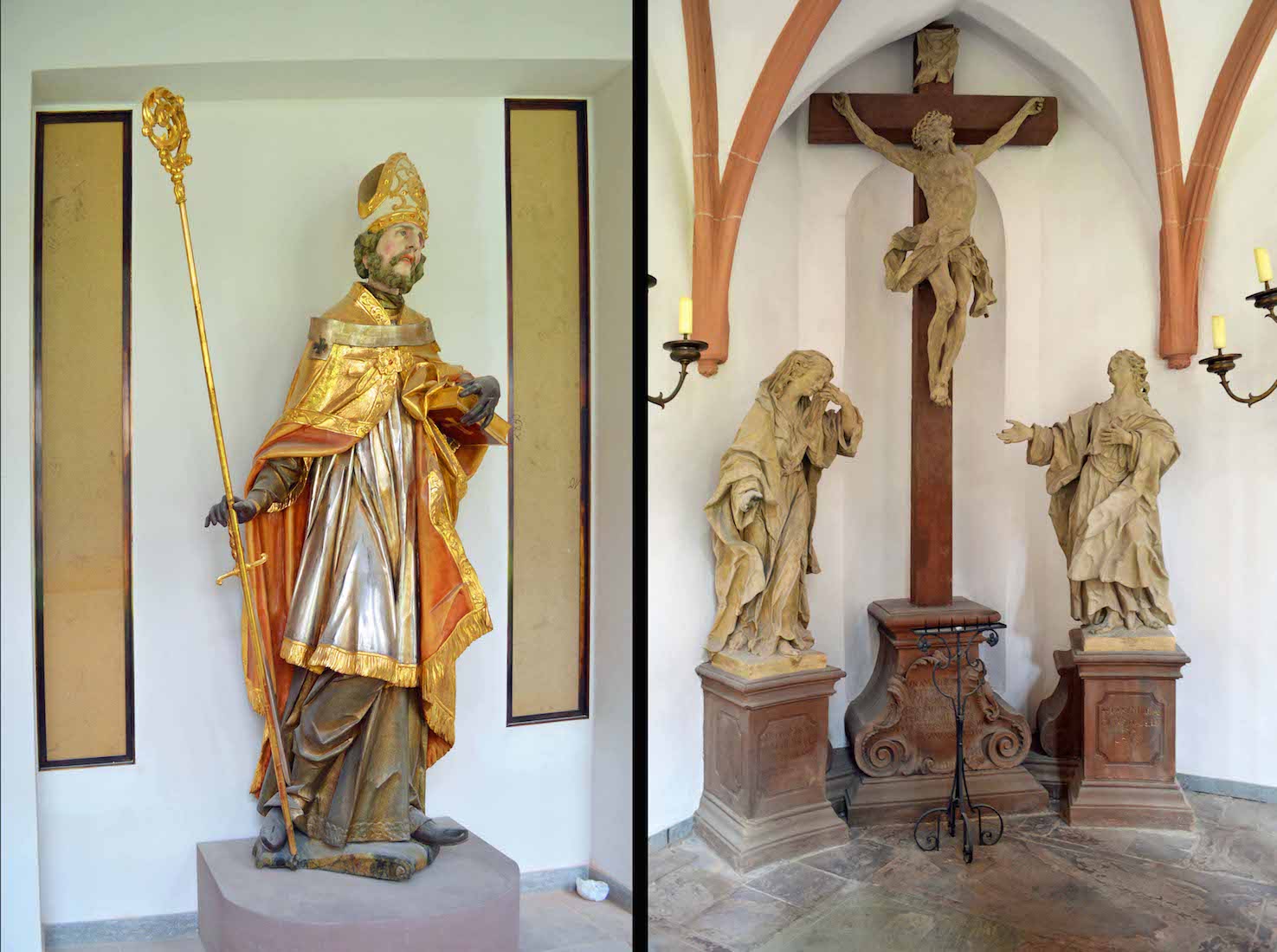
The Bishop standing in the South wing is unnamed. The emotional Crucifixion scene at the South West corner was completed by Lukas van der Auvera in 1761–63.
23. CLOISTER WEST WING
Access to the West wing appeared to be barred during my visit, but we notice the tombs in the foreground and the memorial stones mounted along the West wall. Many of these well-worn slabs were created in the Riemenshneider workshop.
24. CLOISTER EAST WING
We retrace our steps to the East wing. At right is an elaborate tombstone from 1623 by Michael Kern commemorating Jakob Baur, a colonel who died in 1621 during the Thirty Years’ War. A seated figure can be seen on the right in the distance, a little past the cloister entry door from the South transept.
25. CLOISTER NORTH WING
The seated figure turns out to be a rather weathered twin of the figure in St Kilian’s Square. The figure looks back along the North side of the cloister. The walls of this wing are again lined with memorial stones. We notice a large painting in the distance.
26. CLOISTER PAINTING
Christoph Fesel’s painting (1794) of the martyrdom of the apostle Bartholomew, originates from a side altar of the Cathedral. We now leave the cloister, retracing our steps back to the West wall of the Cathedral.
27. WEST WALL
The West façade comprises two towers set close together. The narrow wall between, with its rosette, blind arcade and clock, reveals a neo-Romanesque composition. Historically, it is likely that the narrow width of the West wall was determined by the placing of the Cathedral at the end of the Domstrasse.
29. CHOIR STAND
The screen is very detailed. Also in this area is the choir stand by the Nuremberg caster Hans Würzelbauer (1644). It bears the coat of arms of the bishop Johann Philipp von Schönborn and the canons during the time.
30. PAINTINGS
Two evocative Pietà images by Peter Vogt (1985 and 1986) hang upon the West wall. The entrance to the nave is on the South side.
31. TO THE TREASURY
Moving across to the South aisle of the nave, we first turn right to explore the treasury. At left is a large memorial [33] for the Cathedral provost Konrad von Thüngen († 1629). The stone frame by Balthasar Grohe contains a bronze work from Nuremberg. Over the door to the treasury hangs the painting Crescendo by Matteo Montani (2011).
32. TREASURES I
The treasury [24] contains a number of old works, including the famous knotted columns of Boaz and Jachim (c 1230).
33. TREASURES II
This beautiful Neo-Romanesque work is from the Cathedral’s former main portal tympanum.
34. TREASURES III
At left is an intricate High Altar capital. At right is a sandstone figure of St Leonhard, dating from c 1310. The holy Leonhard is the helper of farmers, grooms, Fuhrmann people, forges and locksmiths, fruit merchants and miners. He is also considered to be the helper of women in childbirth, headaches and mental and venereal diseases. A useful saint to know!
35. CATHEDRAL PLANS
Also in the treasury we find this set of successive Cathedral plans, showing the stages of development over the years.
37. MONUMENT FOR SEBASTIAN ECHTER
This is the first of many monuments we shall find in this Cathedral. This is an alabaster and sandstone tomb memorial for Sebastian Echter von Meselbrunn († 1575).
38. WEST NAVE
We look across the ‘back’ of the nave. This certainly looks to be an interesting Cathedral! A large menorah stands at the back of the central aisle, and we see many monuments. The black wrought iron screen is at left.
39. MENORAH
At the West end of the central nave aisle stands a large menorah, or seven armed candelabrum [2] by Andreas Moritz (1967–1981). Apparently the conception of the church was that of one moving from the Old Testament to the New Testament, from Judaism to Christianity, so that there is a menorah at the entrance, and the Cross at the altar.
40. NAVE
Beyond the menorah, the view down the nave looks past the baptismal font to the gleaming white and gold sanctuary. Roman arches line the way, and there are a great number of monuments.


